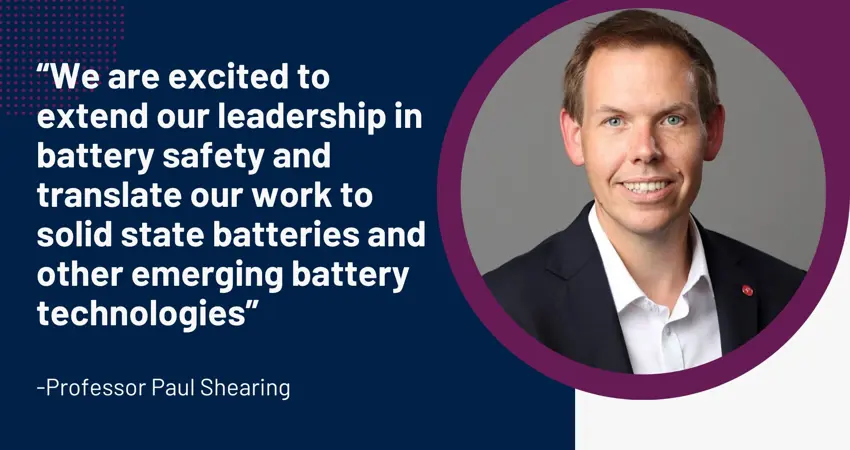24 Apr 2024
Faraday Institution sprint to investigate safety of nextgen batteries
In partnership with Ilika, the University of Oxford and University College London will establish thought leadership in safety protocols for next-generation batteries and undertake physical safety testing on prototype solid-state cells

Faraday Institution Industry Sprints dedicate small multidisciplinary teams of researchers to solve a commercially relevant research opportunity. Over a period of 6 to 18 months, researchers work closely on the challenge, meeting frequently to review progress and hone plans.
The ‘Understanding safety for next-generation battery technologies’ 12 month sprint just announced, led by Professor Paul Shearing at the University of Oxford alongside University College London and industry partner Ilika, will establish thought leadership in safety protocols for next-generation batteries and undertake physical safety testing on prototype solid-state cells, to inform industrial design and deployment.
Solid state batteries are widely believed to represent the solution for next-generation, high energy density batteries in automotive applications. Whilst the removal of flammable liquid electrolytes overcomes a major issue in the safe deployment of high-energy batteries, there remains a general lack of quantified understanding of cell safety, and legacy standards and certification protocols are not necessarily relevant for the failure modes anticipated.
In partnership with leading UK solid-state battery developer, Ilika, and building upon the significant experience of the SafeBatt project, researchers at the University of Oxford and University College London will progress towards a failure modes and effect analysis (FMEA) understanding of solid-state batteries and support Ilika in their scale up and certification of their technology, alongside developing a framework for (pre)certification of next generation battery chemistries.
Professor Shearing says, “Building on the Faraday Institution’s Safebatt project, led by Oxford, we are excited to extend our thought leadership in battery safety and to translate our existing work on Li-ion battery safety to solid state batteries and other emerging battery technologies”.




